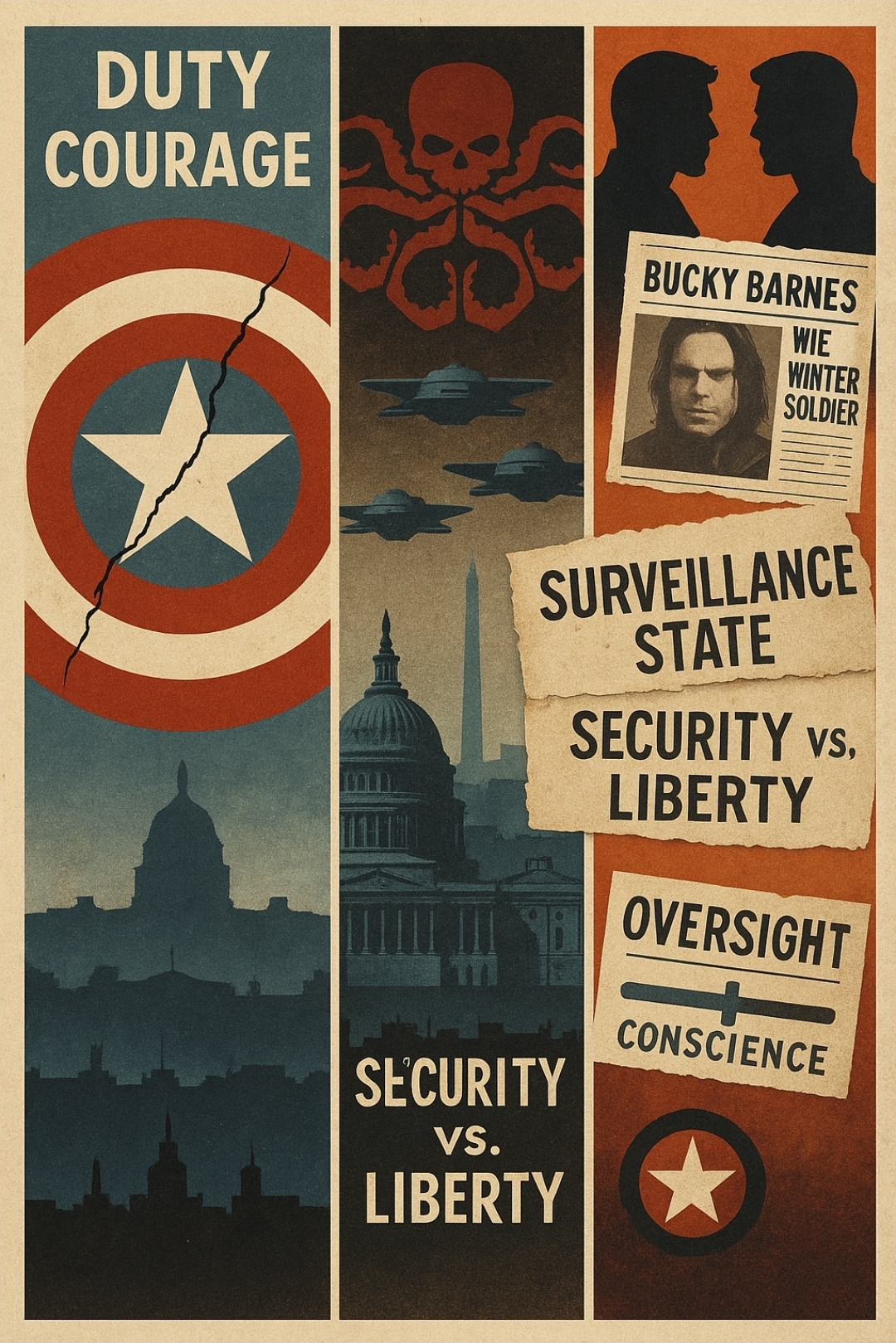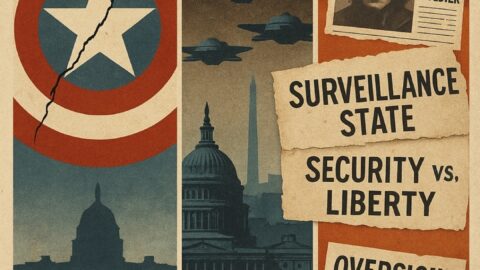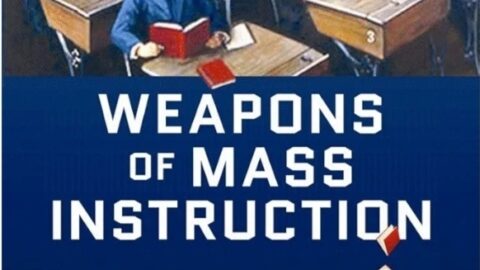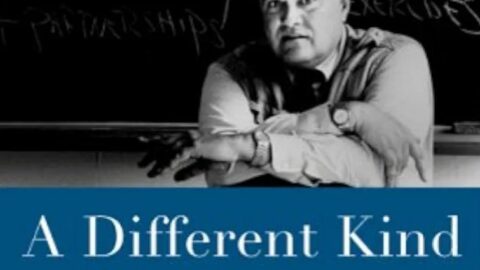The three core Cap films—The First Avenger, The Winter Soldier, and Civil War—aren’t just superhero stories. Taken together, they map a journey from moral formation → institutional capture → conscience under pressure. That arc parallels our present moment with eerie accuracy.
I. The First Avenger — Power After Character
Theme: Power should follow virtue, not create it.
- Skinny Steve: chosen not for brawn, but for a moral compass—“Not a perfect soldier, but a good man.”
- Propaganda vs. substance: the USO shield-waving celebrity vs. the soldier who sneaks behind enemy lines to do the real work.
- Lesson for today: If we elevate people for optics, virality, or tribal loyalty before testing character, we breed fragile leaders and brittle institutions.
Contemporary echo
- Image-first politics, influencer governance, and “brand” over backbone.
- The fix is old-fashioned: vet for truthfulness, restraint, loyalty to the mission over self—then give power.
Hydra Arc:
Hydra embodies what happens when power precedes virtue. Johann Schmidt (the Red Skull) mirrors Steve as his dark counterpart — both began with the serum, but Schmidt’s lust for domination, detached from humility or conscience, made him monstrous. The serum amplified the inner man: Steve’s courage became strength; Schmidt’s pride became tyranny.
Hydra’s motto — “Cut off one head, two more shall take its place” — reveals the self-replicating nature of power without morality. When power is detached from truth, it multiplies corruption under new labels: today’s Hydra takes the form of unelected bureaucracies, corporate technocrats, and ideological crusades claiming virtue while serving control.
Lesson for Today:
If we elevate people for optics, virality, or tribal loyalty before testing character, we breed fragile leaders and brittle institutions.
Contemporary Echo:
- Image-first politics, influencer governance, and “brand” over backbone.
- Hydra’s infiltration of S.H.I.E.L.D. parallels modern institutional capture — systems built to protect freedom becoming tools of surveillance and manipulation.
The Fix (Old-Fashioned):
Vet for truthfulness, restraint, and loyalty to the mission over self — then give power. Character must be the serum; otherwise, Hydra always finds a host.
II. The Winter Soldier — Security Without Liberty Is Just Control
Theme: When institutions forget their purpose, surveillance becomes safety theater.
Project Insight:
A fleet of weaponized helicarriers promising to “save lives” by eliminating threats before they occur. The illusion of protection hides the machinery of oppression—until we learn that HYDRA has captured the system from within. What was sold as peace through technology becomes tyranny through data.
HYDRA’s Infiltration:
Hydra didn’t need to overthrow S.H.I.E.L.D.—it became S.H.I.E.L.D. They infiltrated slowly, wearing the badge of legitimacy while reprogramming its purpose. The logo stayed the same; the mission did not. Their endgame: to use the carriers’ targeting system to identify and eliminate millions of potential dissidents—anyone who might resist authoritarian control.
Like the Nazis before them, HYDRA used fear to justify domination, framing control as safety. “People will willingly surrender their freedom if you convince them it’s for their own protection.”
The Winter Soldier (Bucky Barnes):
Bucky is the metaphor made flesh—the individual turned into an instrument of the state. Once Steve’s loyal friend, he’s now a ghost controlled by programming, stripped of memory, and triggered by code words. He represents what happens when the soul is subjugated to the machine—when obedience replaces identity.
Steve’s battle with Bucky isn’t just physical; it’s moral. He refuses to kill his friend because he sees what’s beneath the programming—the human being lost beneath the system’s conditioning. “I’m with you to the end of the line.” It’s a declaration that redemption is possible, but only by breaking the machinery of control.
Whistleblowing by Action:
Cap doesn’t negotiate with corruption—he burns it down. By exposing S.H.I.E.L.D. and HYDRA alike, he rejects the myth of “reform from within.” You cannot fix a system that feeds on secrecy and surveillance; you can only bring it into the light.
Contemporary Echo:
- Emergency powers that never sunset.
- Mass data collection justified by “national security.”
- Platform moderation without due process, silencing dissent.
- Predictive policing and algorithmic “risk scoring.”
These are our Project Insight—dressed in convenience and security, aimed at control.
The Real Question:
It’s not “Do you trust the people in charge today?”
It’s “What could the worst person do with this tool tomorrow?”
Practical Takeaways:
- Insist on sunset clauses for emergency powers.
- Demand independent audits and adversarial oversight.
- Restore due process as the safeguard against pre-crime governance.
- Require transparent systems—not just reports, but information citizens can actually read and challenge.
Modern Parallels:
- The Patriot Act and FISA courts.
- Digital IDs and central bank digital currencies (CBDCs).
- Algorithmic censorship under the banner of “safety.”
- Data-driven authoritarianism masquerading as democracy.
Closing Reflection:
Hydra’s creed was domination through protection; its method was infiltration, not invasion.
Bucky’s tragedy is what happens when men forget who they are.
Steve’s stand is the antidote: remembering that freedom is not the absence of danger—it’s the presence of conscience.
III. Civil War — Conscience vs. Permission
Civil War — Conscience vs. Permission
Theme: Oversight is a tool; responsibility cannot be outsourced.
I. The Sokovia Accords: When Conscience Meets Bureaucracy
The Sokovia Accords mark the moment when heroism becomes paperwork. After the fallout in Sokovia, world leaders demand control: “You only act when we say you can.” For Tony Stark, haunted by guilt, oversight feels like atonement. For Steve Rogers, it’s surrender — a moral veto handed to politics.
“If we sign this, we surrender our right to choose.”
Steve isn’t rejecting accountability; he’s rejecting permission-based morality. When conscience depends on a committee, courage becomes conditional. The Avenger’s schism reveals a timeless tension: the comfort of compliance versus the burden of freedom.
II. The Frame-Up: When Truth Loses to the News Cycle
A bomb detonates at the Vienna conference, killing Wakanda’s King T’Chaka. Within hours, a video surfaces naming Bucky Barnes as the bomber. The world doesn’t wait for evidence — the narrative goes viral, and the verdict is instant.
Bucky becomes the scapegoat — the enemy of the week.
Fast narrative beats slow truth. The Hydra legacy of framing, infiltration, and psychological manipulation lives on through media velocity.
Black Panther’s Grief and Misjudgment
Prince T’Challa, overwhelmed by loss, accepts the story at face value. He hunts Bucky with righteous fury, believing vengeance is justice. His arc mirrors ours: pain weaponized before reflection. Only when he learns the truth — that HYDRA engineered the attack to divide — does he stop the cycle of vengeance and say,
“The living are not done with you yet.”
His clarity restores the moral balance that institutions and emotions alike had clouded.
III. The Civil War of Ideals
The Sokovia Accords divide the Avengers into Team Iron Man and Team Captain America — not heroes versus villains, but two moral logics in collision.
| Team Iron Man | Team Captain America |
|---|---|
| Believes oversight ensures legitimacy. | Believes conscience cannot be outsourced. |
| Fears chaos without regulation. | Fears tyranny through regulation. |
| Seeks reassurance. | Seeks responsibility. |
Their conflict isn’t just about rules — it’s about trust.
Tony trusts process; Steve trusts people. Tony builds armor around guilt; Steve carries the cross of choice.
IV. The Hydra Principle in Modern Form
HYDRA’s infiltration of institutions foreshadowed this: power now hides behind policy. Control wears the mask of procedure. The Sokovia Accords are the sanitized successor to Project Insight — permission wrapped in legality.
When moral action requires a permission slip, evil wins by delay.
V. Contemporary Echo
- Policy by viral video: narrative replaces evidence.
- Justice by press conference: emotion replaces due process.
- Regulation by “trust & safety” PDF: compliance replaces conscience.
- Governance by outrage: headlines replace hearings.
The pattern is modern but familiar: when oversight becomes obedience, truth becomes the casualty.
VI. Practical Lessons
- Oversight must follow action, not precede conscience. After-action reviews build accountability; pre-permission kills initiative.
- Emotion is the easiest vector for manipulation. Grief, fear, outrage — all can be weaponized faster than facts can catch up.
- Slow down the stampede. Truth takes time; propaganda thrives on speed.
- Demand receipts, not narratives. Accountability means evidence, not applause.
VII. The Final Image: Two Leaders, One Question
- Tony looks for reassurance — “If I sign, maybe I’m still the good guy.”
- Steve looks for responsibility — “If I sign, I give up the right to be.”
The conflict ends not in victory but in fracture. The Avengers’ split mirrors our society’s — when conscience is replaced by compliance, and judgment outsourced to institutions that no longer remember their purpose.
The lesson endures:
Oversight is a tool.
Conscience is a duty.
If we surrender the latter for the comfort of the former, we become our own HYDRA — controlled, compliant, and convinced we’re still free.
The Through-Line: How Democracies Atrophy
- We reward spectacle (ratings, rage, optics) →
- We centralize power to manage the chaos →
- We accept shortcuts (“just this once” emergencies) →
- We outsource judgment to panels and platforms →
- We’re shocked when the tools are used for control.
Steve Rogers keeps choosing the harder path:
- Character over clout (First Avenger)
- Principle over captured systems (Winter Soldier)
- Personal responsibility over bureaucratic permission (Civil War)
That is the civic muscle we’re losing—and need back.
How to Use the “Cap Tests” Now
1) Character Test (First Avenger)
- Promote people who’ve carried weight without applause.
- Ask: What did they sacrifice for the mission when no one watched?
2) Capture Test (Winter Soldier)
- For any powerful tool (surveillance, mandates, platform bans): How could this be abused by my worst opponent?
- Require sunsets, appeals, transparency, and independent audits.
3) Conscience Test (Civil War)
- In crisis, separate facts / claims / inferences.
- Demand chain-of-custody evidence before you accept the first viral story.
- Keep authority close to consequences (localism, clear lines of accountability).
What Cap Would Tell Us
- “Earn power; don’t brand it.”
- “If the system is captured, stop it—don’t stream it.”
- “Never sign away the duty to choose what’s right.”
The Captain America trilogy isn’t asking us to worship vigilantes. It’s reminding us that free societies survive when character leads power, institutions can be rebuilt when they drift, and conscience stays awake when permission goes wrong.
If we can practice those three truths—at home, online, and in public life—we’ll be more than fans of a hero. We’ll be citizens again.






